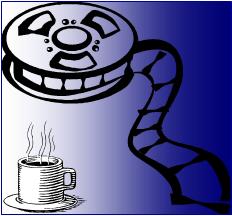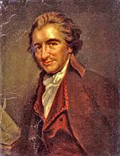

|
 |
|
Grand Prix _____________ 8/10
|
Please go to the new Coffee Coaster site implemented more gracefully in Wordpress. This page: http://brianrwright.com/CoffeeCoasterBlog/?p=9650 |
James Garner ... Pete Aron
Eva Marie Saint ... Louise Frederickson
Yves Montand ... Jean-Pierre Sarti
Toshirô Mifune ... Izo Yamura
Brian Bedford ... Scott Stoddard
Jessica Walter ... Pat Stoddard
Antonio Sabato ... Nino Barlini
When this movie came to the big screen it came to the BIG SCREEN. In 1966 I'm 17 and easily excited by fast cars in exotic places with beautiful people, so Grand Prix filled the bill for my viewing pleasure in every way. Didn't know anything about acting or directing, what it takes to put a movie together, and I knew precious little about racing. But I recall hearing raves on the movie's incredible authenticity of Formula One racing as it was carried out in those days.
Like, say, The Titanic or Star Wars, Grand Prix needed and needs to be seen on the big screen with all the technical wizardry that widescreen visuals and multiphonic sound provide. When I first gazed up at the opening credits where the projector generates successive screen splits of various mechanical images of the cars, all with the roaring and revving of highly tuned engines, I was hooked.
It didn't really matter that the plot was a little weak off the track (though thoroughly believable by modern soap opera standards). The motivations were clear enough and in retrospect I see so many real persons I know in the boiled-down characters... for example, my sister is (was) a dead ringer for the Jessica Walter character and I'm convinced the Eva Marie Saint part was written for my S.O. (significant other).
When I was a teenager, of course, I didn't identify any of these things, but certainly appreciated the dual morality plays:
One concerns the American Pete Aron (James Garner) and his desire to be number one in the world, who steps into a love triangle with Pat Stoddard (Jessica Walter) and her husband Scott (Brian Bedford). The other is of older racer Jean-Pierre Sarti (Yves Montand) who falls in love with American journalist Louise Frederickson (Eva Marie Saint); Jean-Pierre is beginning to show signs of existential angst with the whole mad world of his profession.
I also, of course, appreciated the exceptional camera work. Even today, after 40 years, the car-mounted cameras and aerial filming—all merged with scenes from actual footage from great race venues of the era: esp. Monte Carlo, Spa (Belgium) and Monza (Italy)—stand up to artistic scrutiny. So much so that some of the sequences, where the vehicles are speeding through unprotected country roads and towns at 180 mph plus, may make you want to reach for your seat belt.
It was only within the past couple of years that the movie became available on DVD, and the bonus material alone is worth the price.
James Garner was no stranger to auto racing and performed his own driving in many of the scenes. Graham Hill and Jim Clark, two of the leading Formula One drivers of the era, played drivers in the movie. This was director Frankenheimer's most spectacular film, a box office success, and won three Oscars for editing, sound, and sound effects.
There's also quite a bit of coverage of how racing was conducted in those days, how deadly it often
was, and how safety was a minor consideration until later into the 1970s with the emergence of Jackie Stewart and others who heralded the modern era of superfast, supersafe "airplanes on wheels." (One can appreciate NASCAR popularity in comparison.)
For me the movie is more about general nostalgia... for the sociology of the time that it decorated so well. But for some racing fans, particularly Formula One racing fans Grand Prix is a loving tribute to their demigods.
Regarding the plot and dialog, let me first say I find the "people are only watching racing to see men die" argument to be weak, even weak for the mid-1960s when there was a lot of mass hysteria going around. (Remember we all thought Laugh In was leading-edge comic material.) I've done some so-called safety seminars with my Audi; the many driving and racing enthusiasts I've met convince me most racing fans are actually fans, you know, of racing.
So that whole scene where Eva Marie Saint is screaming at the fans for wanting to see bloodshed, is and was, I feel, over the top. And some, even a lot, of the dialog is so simple it feels contrived: "Do you ever get tired, Pete? Tired of racing?" But so what? I actually find myself enjoying that aspect of the movie; it's not even trying to match the sophistication of machinery with the sophistication of relationships.
A great ride and the people are likable. That's enough for me.
Influence Congress through Downsize DC and
its
Read the Bills Act

Please help the Liberty Dollar by supporting the lawsuit against the US Mint


 |
 |
|||
| |